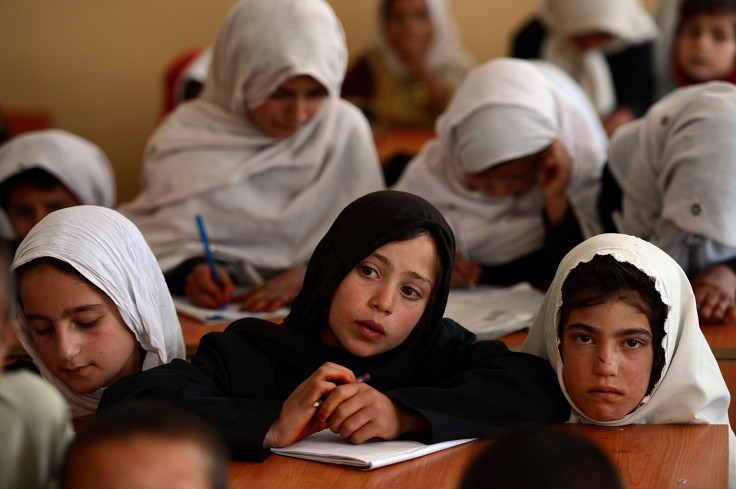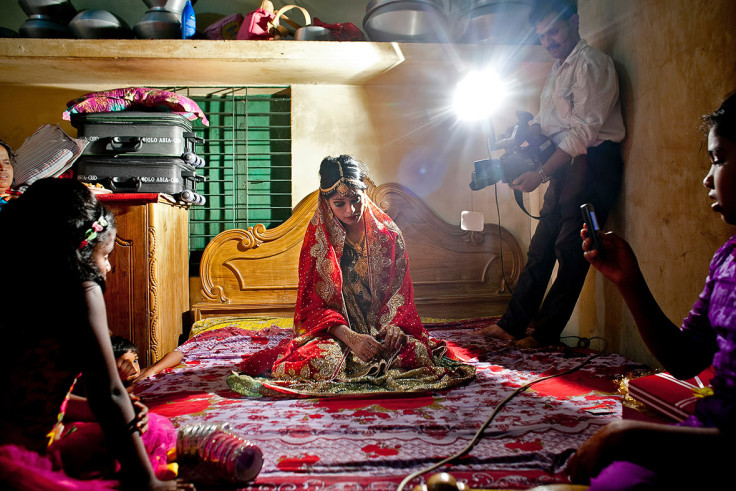World Population Day 2016: Facts, figures and 'investing in teenage girls' theme
Day will highlight problems faced by early motherhood, forced marriage and accessing education.

Forced marriage, early motherhood and gender-based violence form the greatest barriers to girls' access to education. On World Population Day, marked on 11 July, communities around the globe will highlight the need to address these challenges to ensure girls can participate fully in society.
Teenage girls around the world face enormous challenges. With many considered ready for marriage or motherhood, many are forced from school which damages their prospects for the future. Without a full education, girls are denied access to basic information about health and rights. Each year, 15 million girls are married before the age of 18 – which is roughly one every two seconds.
Yet if given access to a full education, teenage girls are able to participate fully in society – to become agents of change in addressing gender inequality.
"Leaders and communities must focus on and stand up for the human rights of the most marginalised teenage girls, particularly those who are poor, out of school, exploited, or subjected to harmful traditional practices, including child marriage," said UNFPA executive director Babatunde Osotimehin.
"Marginalised girls are vulnerable to poor reproductive health and more likely to become mothers while still children themselves. They have a right to understand and control their own bodies and shape their own lives."
The benefits of keeping girls in school are far-reaching as drivers of social and economic development. "We know that by educating a girl, by taking care of her health and feeding her properly, the economy of her village will improve," said Anne-Birgitte Albrectsen, CEO of Plan International.
"This is because she will marry later, have fewer children, and those children will be healthier. Imagine this phenomenon widening out from the village to the town, and the town to the city, over generations and for thousands of girls, and you can see that gradually, improving girls' education across the globe will have a huge impact of the national and global economies."

By the numbers: Girls in education
31 million primary-aged girls are still out of school around the world (UNESCO)
More than 60 million girls are out of school in total (OHCHR)
Three countries have over a million girls not in school. In Nigeria there are almost five and a half million, over three million in Pakistan, and over one million girls out of school in Ethiopia (UNESCO)
Around two-thirds of the 774 million illiterate people in the world are female (UNESCO)
If all girls had a secondary education, child marriages would be cut by two-thirds (UNESCO)
There would be 15% fewer child deaths if all women had a primary school education (UNESCO)
If all women had a secondary education, child deaths would be cut in half, which would save three around million lives (UNESCO)
By the numbers: Global population
According to research from 2014, there is a 70% chance the global population will rise continuously from 7 billion today to 11 billion in 2100
National populations are expected to more than double in 40 countries, many of which are in Africa. Niger's population is projected to more than triple
Thirty-four countries are projected to have smaller populations in 2050 than they do today - with Japan experiencing the largest decline
Women's life expectancy averages 73 years globally, compared to 69 for men
Only one in five national parliamentarians around the world are women.
© Copyright IBTimes 2025. All rights reserved.





















